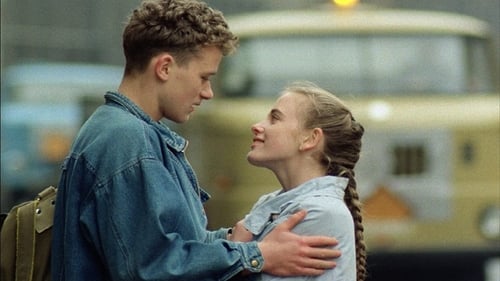
H. B. Ruder
A small-town girl goes to the Berlinale.

In East Berlin in the late 70s, two boys meet one evening in a disco: Thomas, who is from a working class family and is doing an apprenticeship, and Michael, a 16-year-old school pupil from an educated middle-class family. They both miss the tram home and walk together instead, ending up at Michael’s house where they discuss God and the world into the early hours. Following this encounter the two boys enter into an unusual friendship, united by their mutual desire to get away from the phoniness, the limitations and the restrictions of their parents and of society.

Becker
Frank, a tenth grade student, falls in love with his classmate Regine. His father is a well-connected plant manager in the GDR; Regine's mother is a single parent with four children. Regine wants to become a kindergarten teacher, but her grades are poor and she is not allowed to apply for technical college. Frank champions her and seeks an open discussion about these rigid regulations. But his criticism is nipped in the bud.

Zeuner
Last years in the Life of german Dramatican Georg Büchner. Around the year 1830 he and his fellow students try to initiate a revolution in Germany, but they are not successful. Büchner has to leave the country and seeks exile in France and Switzerland, where he falls ill with typhus.

Young lieutenant Riedel, the leader of a motorized unit of NVA riflemen, is always concerned about his men. Thus, he is all the more happy that everything is running smoothly with the new recruits when he returns from his honeymoon. It seems to him that lance corporal Weißenbach, who is not only the oldest of the men but also a formidable armoured personnel carrier driver, has been a reliable stand-in for him. Thus, Riedel is all the more surprised when he learns that Weißenbach boosts the squad's performance with partly questionable methods.



